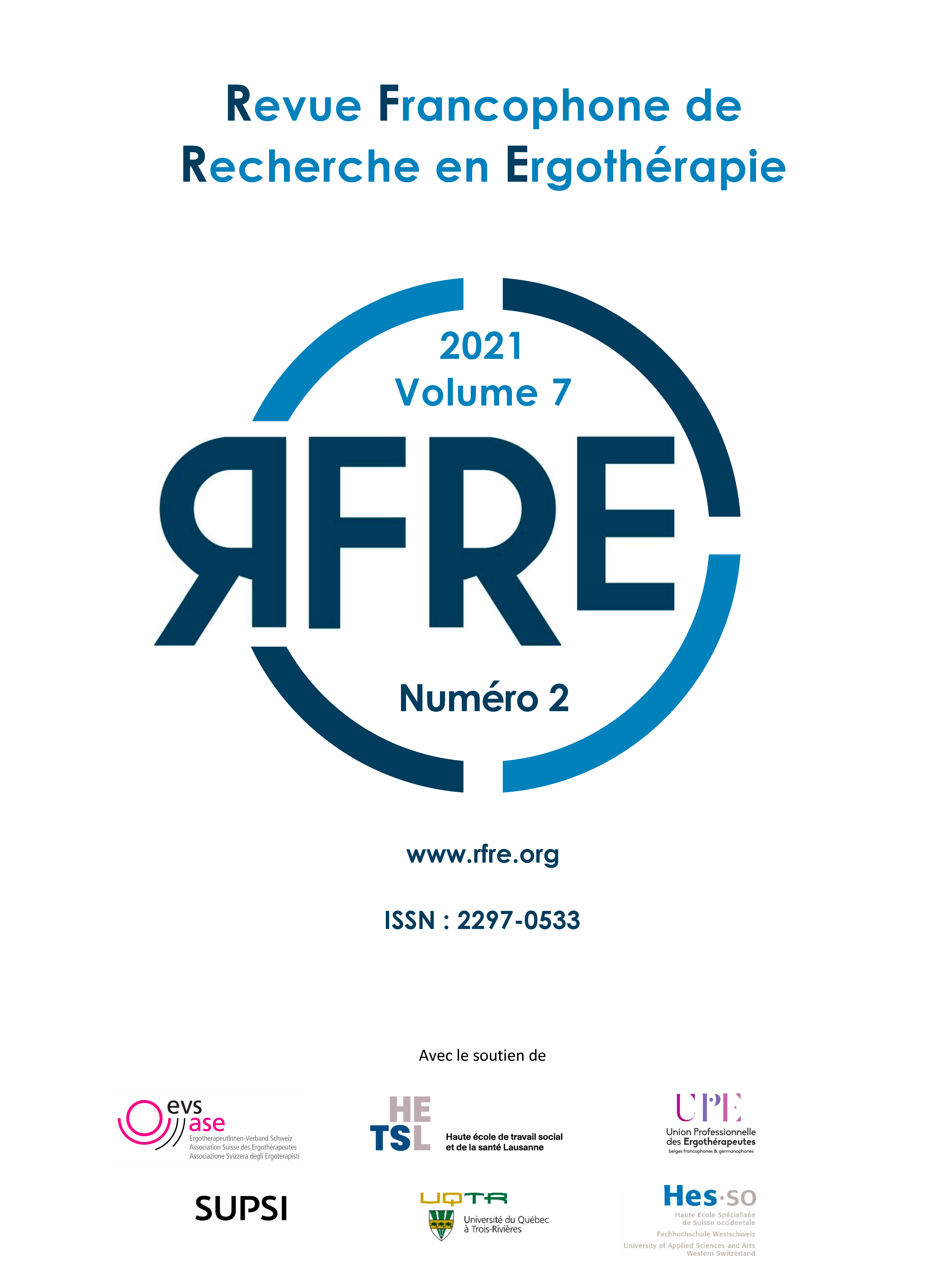Evaluative processes of occupational therapists in stroke rehabilitation facilities
DOI:
https://doi.org/10.13096/rfre.v7n2.194Keywords:
Outils d’évaluation, AVC, Réadaptation, Meilleures pratiques, Evaluation tools, Stroke, Rehabilitation, Best practicesAbstract
Introduction : Stroke impacts the well-being, the activities and the social participation of stroke survivors. Despite the known benefits of rehabilitation and well documented stroke recommendations, systematic application of best practices remains low. In fact, little is known on the type of rehabilitation services that are offered in Quebec. Thereby, the objective of this study was to describe the utilization of evaluation tools by occupational therapists (OTs) working in a rehabilitation facility in Quebec and to characterize the gaps between the utilization of tools and the Canadian Stroke Best Practices.
Méthods : This is a secondary analysis of the data obtained from a provincial audit of 735 charts of stroke patients who received rehabilitation services on a in- or out-patient facility. The frequency of; clinical problems as defined by the International Classification of Functioning, Disability and Health (ICF); evaluation processes and; evaluation tools used by OTs were estimated. Chi-Square tests were calculated to compare in-patient and out-patient results.
Results : A total of 46 tools were used by OTs while only 22 of those met the best practices. The most frequently ICF domains evaluated by OTs were associated to the motor, cognitive, and visuo-perceptual functions as well as driving, daily and instrumental activities. Overall, OTs working in in-patient facilities used more tools than those working in out-patient facilities.
Conclusion : Despite gaps between OTs practice and best practices, clinical problems of patients are evaluated. Future studies are necessary to understand the factors justifying those gaps.
Downloads
Published
How to Cite
Issue
Section
License
Copyright (c) 2021 Deborah Apollon-Roy, Carole Miéville, Lise Poissant

This work is licensed under a Creative Commons Attribution-NonCommercial-ShareAlike 4.0 International License.












